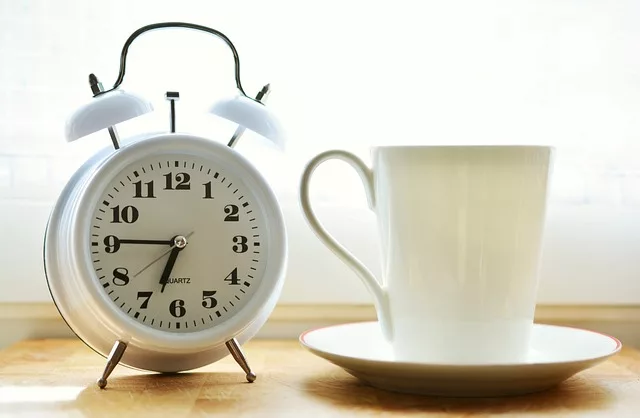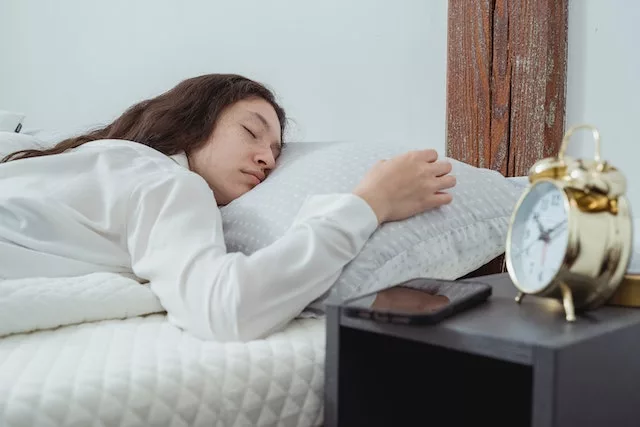Caffeine is a stimulant that many people consume regularly in order to stay awake, alert, and focused throughout the day. However, while caffeine can be helpful in small doses, it can also interfere with sleep patterns if consumed too close to bedtime. In this article, we’ll explore the ways in which caffeine can disrupt sleep and offer some tips on how to mitigate its effects.
How Caffeine Interferes With Sleep
Caffeine is a powerful stimulant that affects the central nervous system by blocking the action of adenosine, a chemical in the brain that promotes sleepiness. When caffeine is consumed, it increases the levels of dopamine and norepinephrine in the brain, which can lead to increased alertness and energy. However, if consumed too close to bedtime, caffeine can interfere with the body’s natural sleep-wake cycle and make it more difficult to fall asleep and stay asleep.
In addition to disrupting sleep patterns, caffeine can also have other negative effects on the body, including increased heart rate, elevated blood pressure, and reduced sleep quality. Chronic consumption of caffeine can also lead to tolerance, which means that the body becomes less sensitive to its effects over time, requiring higher doses to achieve the same level of alertness.
Minimize the Effects of Caffeine
If you’re having trouble sleeping and suspect that caffeine may be the culprit, there are several steps you can take to reduce its effects on your sleep patterns:
Limit Your Consumption
The most obvious solution to reducing the effects of caffeine on sleep is to limit your consumption. Try to avoid consuming caffeine in the afternoon or evening, and be mindful of the amount of caffeine you’re consuming throughout the day. Consider switching to decaffeinated coffee or tea in the afternoon or evening, or opting for other non-caffeinated beverages.
Establish a Bedtime Routine
Establishing a bedtime routine can help signal to your body that it’s time to wind down and prepare for sleep. This can include activities such as reading a book, taking a warm bath, or practicing relaxation techniques such as deep breathing or meditation.
Create a Sleep-Conducive Environment
Creating a sleep-conducive environment can also help promote better sleep. This includes keeping your bedroom dark, quiet, and cool, and avoiding activities such as watching TV or using electronic devices in bed.
Exercise Regularly
Regular exercise can help reduce stress and promote better sleep. However, it’s important to avoid exercising too close to bedtime, as this can increase alertness and make it more difficult to fall asleep.
Consider Other Factors
If you’re still having trouble sleeping despite taking these steps, it may be worth considering other factors that could be interfering with your sleep, such as stress, anxiety, or an underlying sleep disorder. If you’re concerned about your sleep patterns, it’s always best to speak with your healthcare provider.
Conclusion
While caffeine can be a helpful tool for staying alert and focused during the day, it can also interfere with sleep patterns if consumed too close to bedtime. By limiting your consumption, establishing a bedtime routine, creating a sleep-conducive environment, exercising regularly, and addressing any underlying factors that may be interfering with your sleep, you can reduce the effects of caffeine on your sleep and enjoy a better night’s rest.
Image by Soner Köse from Pixabay
Sleep
-

How to Snack at Night to Sleep Well?
Snacking is a common part of modern eating habits, often providing a source of comfort and satisfaction. However, the timing and content of these snacks can have significant effects on various aspects of health, including sleep. In this article, we will explore the relationship between late-night snacking and sleep, highlighting the potential impacts on sleep…
-

What is a Sleep Log and why you need one: Unlocking the Secrets to Better Rest and Overall Health
-

Exploring the Relationship Between Intermittent Fasting and Sleep Quality
-

The Role of Hormones in Sleep and Natural Ways to Improve Hormone Health for Better Sleep
-

The Powerful Diet and Sleep Connection: Understanding the Impact
-

How to master the Art of Power Naps: A Guide to Healthy and Effective Power Naps
-

7 Essential Oils in Aromatherapy to Promote Sleep









Leave a Reply